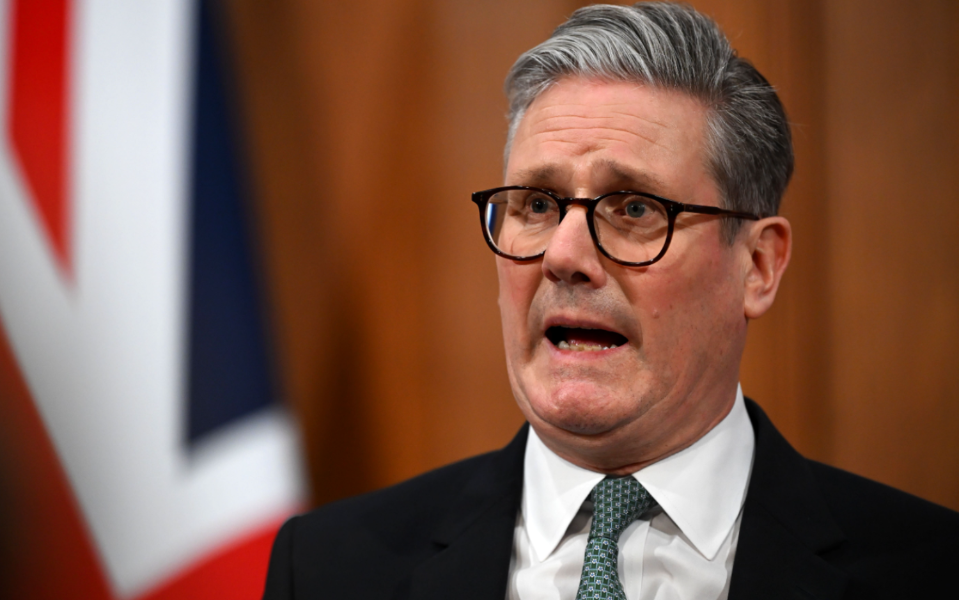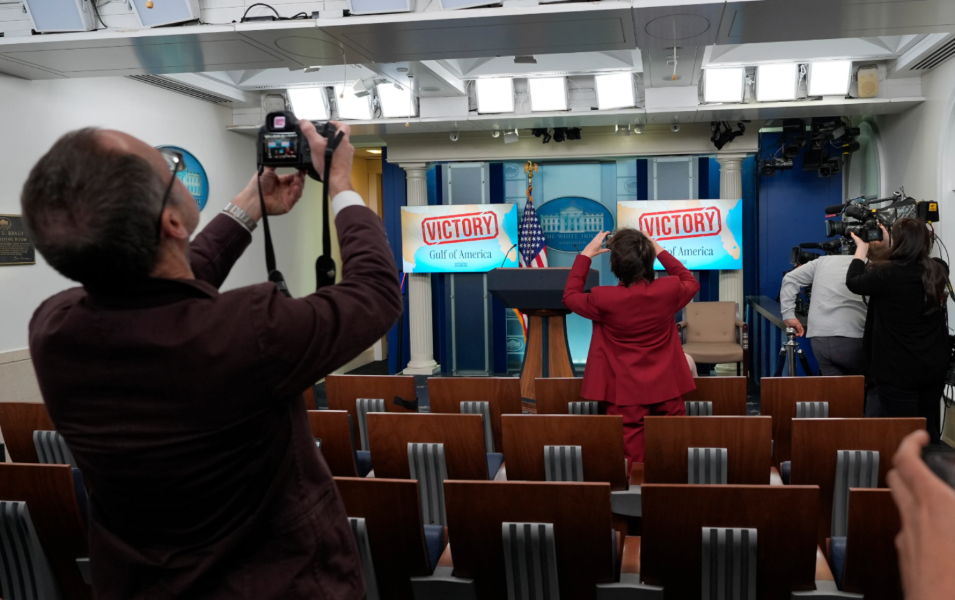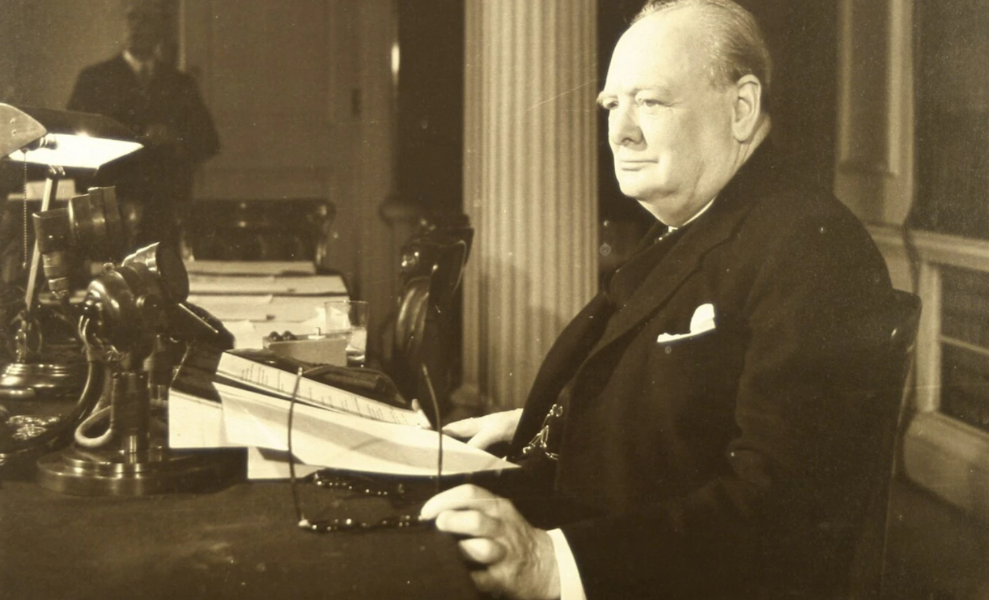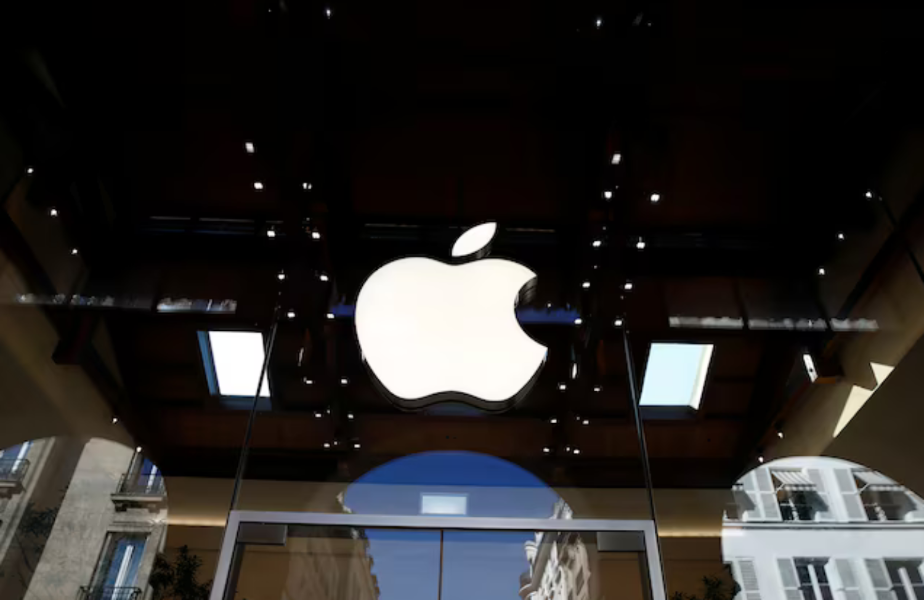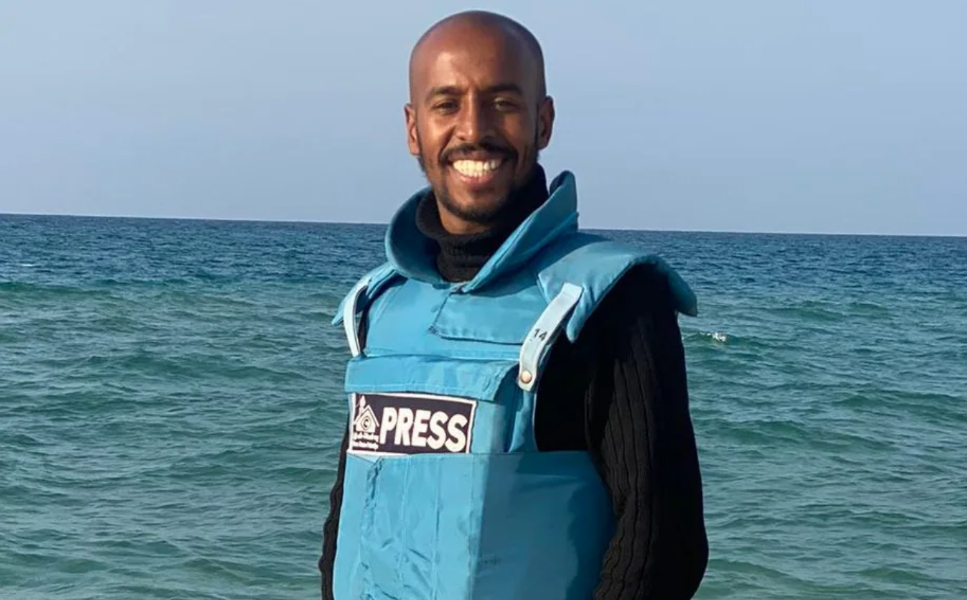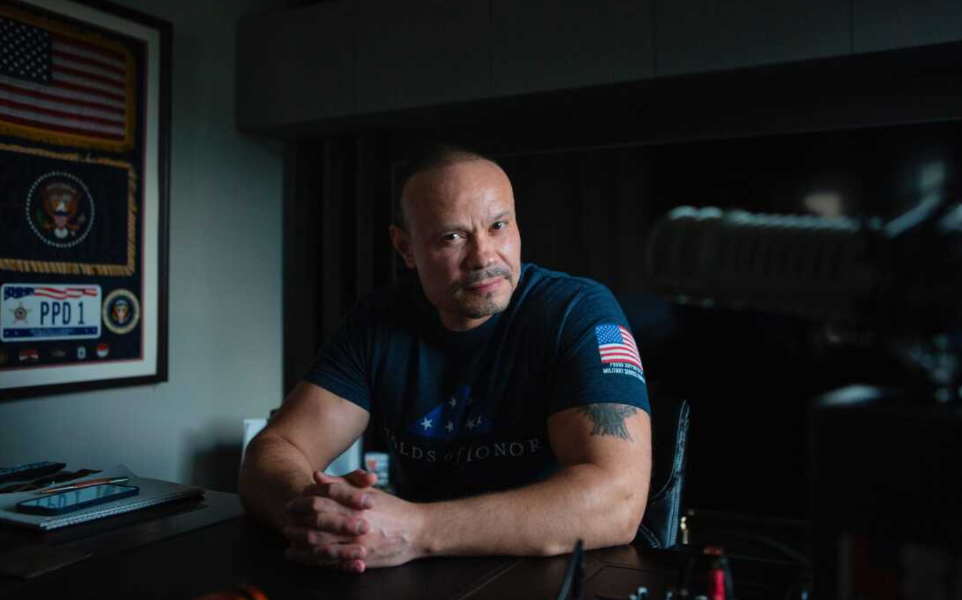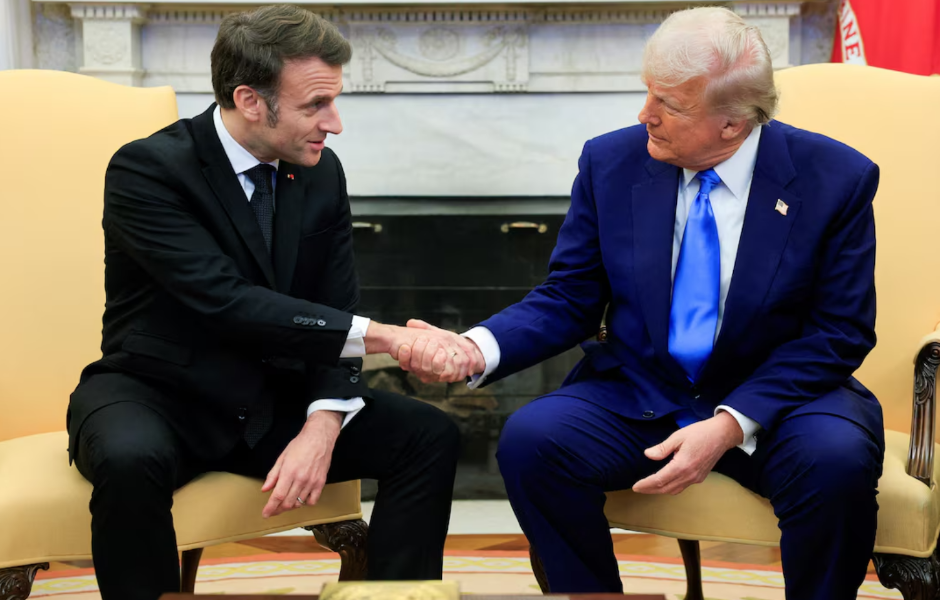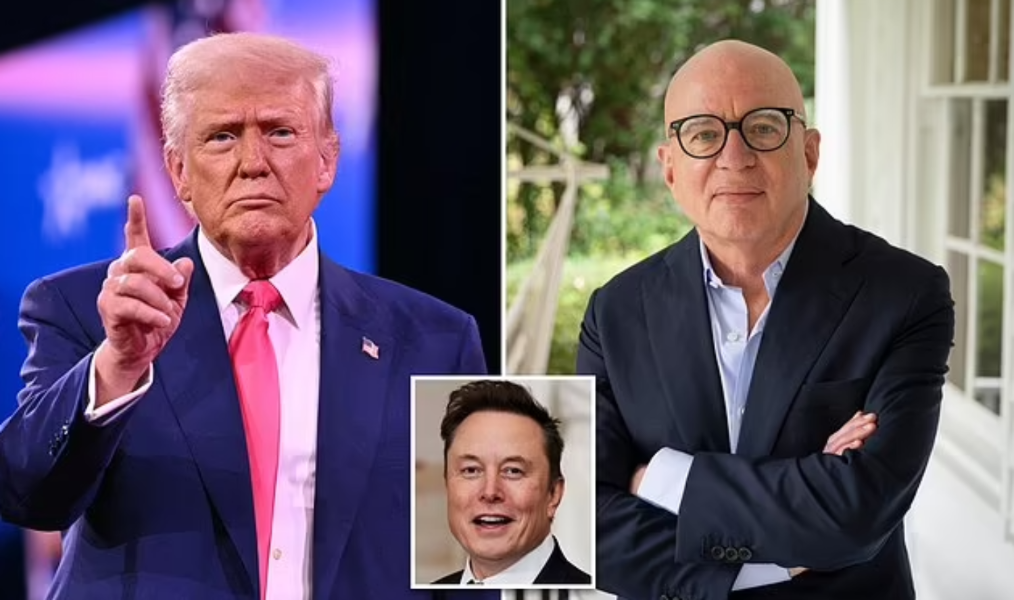-
Posts
10,807 -
Joined
-
Last visited
Content Type
Events
Forums
Downloads
Quizzes
Gallery
Blogs
Everything posted by Social Media
-

Wanted Burglar Caught After Chase Through School
Social Media replied to Georgealbert's topic in Bangkok News
@Gottfrid a highly racist and hateful post of your removed. -
Prime Minister Sir Keir Starmer has unveiled plans to raise the UK’s defence spending to 2.5% of national income by 2027, a move coming as peace negotiations over the war in Ukraine gain traction. To finance the increase, Starmer announced cuts to the UK’s international aid budget, currently set at 0.5% of gross national income, reducing it to 0.3% in the same period. 'Biggest sustained increase in defence spending since the end of the Cold War' – Starmer announces 2.5 per cent of GDP for defence spending by 2027. Previously, Starmer had indicated that the government would map out a pathway to spending 2.5% of GDP on defence by the next general election, contingent on a review of national security needs. However, rapid diplomatic developments—driven in part by Trump’s push to end the Ukraine war—have brought a sense of urgency to the decision-making process. It remains uncertain whether this increase will satisfy Trump, who has been vocal in demanding that European NATO allies contribute closer to 5% of their GDP to defence. NATO guidelines currently call for a minimum of 2%, though the alliance’s newly appointed leader, Mark Rutte, recently suggested that members should aim for "north of 3%." Based on a report by BBC | X 2025-02-26
-
A federal judge has declined to immediately reinstate The Associated Press’s access to key White House spaces, including the Oval Office, amid an ongoing dispute between the Trump administration and the wire service over its refusal to adopt the term “Gulf of America” in its stylebook. The decision comes as the AP challenges what it describes as government retaliation against the press. U.S. District Judge Trevor McFadden, appointed by Trump during his first term, ruled that the AP had not demonstrated a likelihood of success on the merits, emphasizing that more legal arguments are needed before a decision can be made. “Given the stakes” for both parties, he scheduled an expedited hearing for March 20 to consider the matter further. In response, the AP reiterated its commitment to press freedom, stating, “We look forward to our next hearing on March 20 where we will continue to stand for the right of the press and the public to speak freely without government retaliation. This is a fundamental American freedom.” The AP claims that the White House’s decision to bar its reporters from certain events, including those in the Oval Office and on Air Force One, stems from its refusal to comply with the administration’s push for an “official government vocabulary.” The White House, in turn, argues that the president has the right to determine which reporters receive access, particularly those who he believes will accurately convey his message to the public. The AP’s lawsuit, filed last week against three White House officials, challenges what it calls a “targeted attack” on its editorial independence. According to court filings, the restrictions began on February 11, initially preventing AP print journalists from attending Oval Office events. Since then, AP photographers have also been barred, and further access to broader press events has been restricted. Charles Tobin, an attorney representing the AP, described the administration’s actions as an attempt to pressure the wire service into “changing the national vocabulary.” He argued that while the president has the right to decline AP’s questions, he cannot lawfully block the organization from participating in the White House press pool. “The ground seems to keep shifting,” Tobin said, referring to the widening scope of AP’s access restrictions. Judge McFadden raised questions about the role of the White House Correspondents’ Association (WHCA) in determining press access, suggesting it was “a little odd” for the White House to be bound by an external organization’s decisions. At one point, he even floated the idea that the administration could “decide to throw out” the WHCA altogether. Justice Department lawyer Brian Hudak, defending the White House, argued that the president has the authority to determine who receives “special access” to him and noted that AP has historically enjoyed an advantageous position, with permanent pool assignments for one photographer and one print reporter. Hudak also asserted that the First Amendment guarantees the right to publish news, but not the right to gather it. He further contended that the White House could, if it wished, dismantle the current press pool system altogether and instead grant access on an event-by-event basis. White House Deputy Chief of Staff Taylor Budowich, one of the officials named in the lawsuit, defended the administration’s actions, saying that AP’s refusal to adopt the term “Gulf of America” reflected a broader commitment to “misinformation.” “While their right to irresponsible and dishonest reporting is protected by the First Amendment, it does not ensure their privilege of unfettered access to limited spaces, like the Oval Office and Air Force One,” Budowich said. The AP, a widely recognized nonpartisan news agency, has long been relied upon by media organizations for standardized reporting guidelines. Its stylebook continues to use “Gulf of Mexico” to describe the body of water in question, stating that the name is widely understood both in the U.S. and internationally. However, it also notes Trump’s decision to rename it “Gulf of America” after taking office. White House Press Secretary Karoline Leavitt, also named in the lawsuit, dismissed the AP’s challenge during a recent speech at the Conservative Political Action Conference, declaring, “We’ll see them in court.” She added that the administration believes it is “in the right in this position,” signaling that it intends to continue defending its actions as the case proceeds. Based on a report by The Hill 2025-02-24
-
Woman chained up in basement, raped and forced to eat and drink from dog bowl for 3 months: ‘Kept begging desperately for help’. A woman was chained up in a basement and repeatedly raped and forced to eat and drink “like a dog” from a bowl in a house of horrors in the Czech Republic, authorities say. The 27-year-old victim, who escaped with a chain still around her neck, had her head shaved and was heinously tortured and starved to the point that she looked like she was “from a concentration camp,” a resident told local outlet iDNES.cz. “It’s horrible. I never would have dreamed that something like this could happen here,” another local told the Czech publication Zatecky Denik, speaking from the village of Sirem, about 30 miles northwest of the capital of Prague and once home to the country’s most famous literary figure, Franz Kafka. She was miraculously able to escape at night last week when her captor wasn’t home and she fled to a nearby neighbor. “I was woken up by the doorbell at three in the morning,” the resident told iDNES.cz. “I looked out the window, and there was a young woman standing there. I was terribly scared. She looked miserable. “I took her inside, she collapsed, cried and kept begging desperately for help,” the neighbor added to Zatecky Denik. “She said that her acquaintance raped her, tied her up with a chain, starved her and tortured her. He only occasionally gave her water and food in bowls like a dog.” Another resident told iDNES, “She had a chain around her neck, and it was bone and skin like from a concentration camp.” Police spokesman Kamil Marek told reporters, “In connection with this case, we arrested a 40-year-old man and subsequently charged him with the crimes of deprivation of personal liberty, rape, and extortion.” The suspect remains in custody, as he is considered a flight risk because of his regular travels across the border as a truck driver, authorities said. Czech media reported that the man had previously abused and tortured another woman at the house four years ago after luring her there with the promise of a job. He was jailed for three years for rape and deprivation of liberty before being released early on probation in 2022 after appealing. “I knew the defendant through my aunt, whom he was dating,” the female victim in that case told a local court at the time. “He approached me saying I could work as a hostess. I was unemployed, I was looking forward to having [a job]. We agreed that he would pick me up at home and that I would go to his place to take some photos and sign a contract.” Instead, the 22-year-old woman had a dog mask put on her head and was hung from chains on all fours and given electric shocks, she said. A female accomplice reportedly helped Karel N. with his crimes. If found guilty of the latest offenses, he faces up to 12 years in prison. In the unspeakable case of Fritzl, he held his own daughter hostage in a basement dungeon for 24 years and repeatedly raped her, fathering seven children with her, before his horrific crimes were uncovered in 2008. Based on a report by NYP 2025-02-26
-
Imagine boarding a train in London and stepping out in New York just 54 minutes later. While this might sound like something out of a sci-fi novel, a proposed Transatlantic Tunnel claims it could make this a reality. Backed by Elon Musk, this ambitious concept would allow passengers to travel the 3,400-mile (5,470 km) journey at astonishing speeds. However, the convenience comes with an eye-watering price tag—an estimated $19 trillion (£15 trillion), which is more than five times the UK's total gross domestic product. Musk has fueled excitement by suggesting that his tunnel-digging venture, The Boring Company, could complete the project for "1000-times less money." The technology behind such a tunnel is not entirely new. Using vacuum tubes and magnetically levitating trains, engineers believe they could eliminate almost all friction, allowing trains to reach speeds exceeding 3,000 mph (4,800 kmph). The result? A journey so smooth you wouldn't even spill your coffee. While this might seem like a futuristic dream, the idea of a transatlantic tunnel has been around for more than a century. The first known proposal appeared in an 1895 story by Michel Verne, son of the famed sci-fi writer Jules Verne. Titled *Un Express de l’Avenir* (*An Express of the Future*), it described a high-speed underwater connection between Europe and America. In 1913, German author Bernhard Kellerman wrote *Der Tunnel* (*The Tunnel*), which later inspired the 1935 English-language film *Transatlantic Tunnel*. In the early 20th century, the pioneering engineer Robert H. Goddard—credited with inventing the first liquid-fueled rocket—received patents for tunnel designs that hinted at this high-speed future. However, it is only in recent decades that advancing technology has made such an endeavor seem plausible. Two key innovations are bringing the Transatlantic Tunnel closer to reality. The first is magnetic levitation (maglev) trains, which use powerful electromagnets to lift the train off the tracks. This eliminates direct contact with the rails, significantly reducing friction and allowing for unprecedented speeds. Maglev trains are already operational in countries like Japan, Germany, and China, where they are considered the future of high-speed transport. China, in particular, is expanding its maglev network, with ambitions for passenger trains traveling over 621 miles (1,000 km) per hour—approaching the cruising speed of a Boeing 737. Currently, China has two operational maglev lines: the Changsha Maglev, which reaches 62 mph (101 kmph), and the Shanghai Maglev, which hits 268 mph (431 kmph). While impressive, these speeds are still far from what would be needed for a transatlantic journey in under an hour. That’s where the second crucial innovation comes in: vacuum tunnels. Instead of running trains on open-air tracks, they would travel inside enclosed tubes with the air pumped out, drastically reducing air resistance. This "hyperloop" design could allow trains to reach speeds exceeding 600 mph (965 kmph), far surpassing any current railway system. Elon Musk has long been an advocate for hyperloop technology, even proposing a vacuum-sealed tunnel between San Francisco and Los Angeles. Although the concept is still in its early stages, recent breakthroughs suggest that such a system is not entirely out of reach. While a $19 trillion transatlantic tunnel remains an enormous challenge, the combination of maglev and hyperloop technology could, one day, transform global travel. If realized, it could redefine transportation as we know it—bringing the world closer together in ways once thought impossible. Based on a report by Daily Mail 2025-02-26
-
Tara Reade, a former Democratic staffer who accused President Joe Biden of sexual assault, has escalated her legal battle against the Biden administration, increasing her lawsuit’s damages to $100 million. The amended complaint, filed on February 24 with the FBI’s legal counsel in Washington, alleges that the FBI, the Department of Justice (DOJ), former U.S. Attorney General Merrick Garland, and former FBI Director Christopher Wray violated her state and federal constitutional rights. Reade initially filed a tort claim covering the period between April 4, 2019, and January 20, 2025, but never received a formal response from the DOJ. Originally seeking $10 million, she has now increased the demand tenfold. "I think the lawsuit's going to just kind of show the Deep State; how the Biden administration was able to manipulate Western media pretty well using money and other means," Reade told *Newsweek*, referencing the controversy surrounding Hunter Biden's laptop. She further stated that the lawsuit demands an investigation into the alleged third-degree sexual assault and hopes it will help clear her name. Citing standard legal practice, an FBI spokesperson declined to comment on the ongoing litigation. Reade, who previously worked as an aide to Biden when he was a U.S. senator from Delaware, made headlines in 2020 when she accused him of assaulting her in a Senate corridor in 1993. Biden has consistently denied the allegations, and his administration has pushed back against Reade’s claims. Former White House Deputy Press Secretary Andrew Bates dismissed her as "an aspiring Russian citizen" who had aligned with a foreign government. Her attorney, Jonathan Levy, told *Newsweek* that they delayed amending and refiling the complaint until Kash Patel was confirmed as FBI Director, which happened last Thursday. Levy pointed to former President Donald Trump’s recent executive order aimed at "ending the weaponization of the federal government," suggesting that this move could help bring attention to Reade’s case. "The Biden administration appeared to be hands-off, at least as far as responding to any kind of legal process or request," Levy explained. "President Trump signing the anti-weaponization executive order is a big change. The idea is to investigate and bring some light onto the weaponization that occurred toward influencing the presidential campaigns, as well as to go after whistleblowers connected with the Biden family." Levy noted that the decision to increase the damages sought was influenced by the legal precedents set in cases like writer E. Jean Carroll’s defamation lawsuit against Trump. Carroll was awarded $5 million in damages in 2023 after a jury found Trump liable for sexual abuse and defamation, and an additional $83.3 million in January 2024. "We probably had too low of a number there to begin with," Levy admitted. "Looking at similar cases, like E. Jean Carroll, this seems like a more appropriate figure. Also, we're now naming Merrick Garland as a defendant." Reade, who left the U.S. for Moscow in May 2023, was granted expedited asylum in Russia later that year. She now works as a contributor for RT (formerly Russia Today), a state-funded media outlet. Her lawsuit claims that the government played a role in tarnishing her reputation by portraying her as a "Russian agent" and unlawfully surveilling her. She alleges that her communications and financial records were seized and that she faced numerous death threats, leading to severe emotional distress and anxiety. A separate civil rights complaint filed to the DOJ in 2023 accused the FBI of investigating her under the guise of "Operation Cassandra," even as she sought their protection from threats. Despite vocal support from Republican figures such as Matt Gaetz, Marjorie Taylor Greene, and Nancy Mace on social media, Reade expressed frustration that no congressional Republicans had directly assisted her. However, she remains hopeful that figures like Patel, Attorney General Pam Bondi, and Director of National Intelligence Tulsi Gabbard will take an interest in her case. "My hope is that because the weaponization in my case was so egregious, it will come to their attention and for their benefit," Reade stated. "But if they choose not to, they choose not to. I really am hopeful that they will prioritize citizens that have been targeted like I was, and I'm not the only one. But I am the only one right now that I know of that's actually pursuing damages in a lawsuit with the DOJ and FBI, to open my files and have them expunged." Based on a report by Newsweek 2025-02-26
-
Portraits of Winston Churchill have been taken down from Parliament following Labour’s landslide victory in the general election, The Telegraph has revealed. Drawings, prints, and photographs of the Second World War leader were removed after the arrival of new MPs in Westminster last year. Churchill’s legacy has come under scrutiny in recent years, with some historians and activists arguing that he was a racist imperialist and bore responsibility for the Bengal famine. Five images of the former prime minister were removed from various parts of the parliamentary estate, particularly in areas housing MPs' offices. One notable photograph, which was taken down from Portcullis House, depicted Churchill standing at the Cenotaph in 1945. Other prominent historical figures have also had their portraits removed, including the Duke of Wellington. These artworks are part of the Parliamentary Art Collection, which consists of around 10,000 pieces available for MPs to display in their offices. The collection underwent an audit in 2020 following the Black Lives Matter protests, with the Speaker’s advisory committee on works of art compiling a dossier identifying historical figures considered controversial due to links to slavery or racism. Several artworks listed in this dossier were removed after the election, which saw Labour gain 211 seats and 335 new MPs enter Parliament. Some think tanks described this intake as the most racially diverse in history. Following the July 4 election, five portraits of William Gladstone, the four-time Liberal prime minister, were also taken down. Gladstone’s father had been a slave owner and received compensation upon the abolition of slavery. Simultaneously, five images of Oliver Cromwell were removed, as he was listed in the audit as someone who “supported slavery, had financial or family interests in the transatlantic slave trade and slavery.” Similarly, a portrait of Lord Liverpool, a Tory prime minister, was taken down after being listed in the same category. Three portraits of the Duke of Wellington were removed a week after the election, despite him not being explicitly mentioned in the dossier. His contributions to colonial expansion in India were cited as reasons for his removal. Additionally, a portrait of William Wilberforce, a renowned abolitionist, was taken down. Other figures whose depictions were removed include Lord Salisbury, Victorian prime minister; poet John Milton; Charles I; and Queen Victoria and Prince Albert. Most of these artworks were taken from office buildings such as Portcullis House, Derby Gate, and the Norman Shaw building, all of which are outside the main Palace of Westminster and serve as workspaces for MPs. It is understood that these pieces have now been placed in storage. However, within the Palace of Westminster itself, which operates under a different system, multiple statues and paintings of Churchill remain in place. The display and placement of artwork in the House of Commons is managed by the Heritage Collections Team and the Speaker’s advisory committee on works of art. While some pieces are integrated into the architecture of the Palace and hold more permanent positions, others are subject to rotation, though not necessarily influenced by individual MPs. This development follows reports by The Telegraph that Sir Keir Starmer removed a portrait of William Shakespeare from No 10, along with images of Elizabeth I, Sir Walter Raleigh, and Margaret Thatcher. Additionally, Chancellor Rachel Reeves has reportedly taken down portraits of historical leaders such as David Lloyd George and Benjamin Disraeli from No 11, replacing them with works commemorating lockdown. Based on a report by The Telegraph 2025-02-26
-
Following the Democratic Party’s defeat in the 2024 election, donors are holding back funds, frustrated by what they see as a lack of vision and effective strategy. As the party struggles to regroup after Kamala Harris’s loss to Donald Trump, financial backers—from bundlers to grassroots supporters—are expressing deep dissatisfaction with the state of Democratic leadership. "I’ll be blunt here: The Democratic Party is f‑‑‑ing terrible. Plain and simple," said one major Democratic donor. "In fact, it doesn’t get much worse." Another donor shared a similar sentiment: "They want us to spend money, and for what? For no message, no organization, no forward thinking. … The thing that’s clear to a lot of us is that the party never really learned its lesson in 2016. They worked off the same playbook and the same ineffective strategies and to what end?" Many donors feel misled by party leaders, particularly during the 2024 campaign cycle. Until the June debate, they had been assured that President Joe Biden was capable of defeating Trump again. However, when Biden’s poor debate performance raised serious concerns about his age and ability, donors felt betrayed. Even after Harris took over as the Democratic nominee, financial backers poured significant resources into a campaign that ultimately relied on outdated strategies. Harris’s loss left morale among Democrats at an all-time low. "This is worse than 2016," said the first donor. "Our party is so weak and so diminished." Steve Schale, who directed the pro-Biden super PAC Unite the Country, acknowledged the frustration. While some donor reluctance stems from post-election fatigue, he admitted, "There is genuine frustration." "I’ve talked to a number of donors who just don’t have a lot of confidence after 2024 and want to see how people are thinking about issues differently," Schale said. "Donors are taking calls, but they’re asking harder questions, which I think is a good thing. Frankly, a lot of donors I’ve talked to don’t think their voice mattered in 2024, so I’ve been doing more listening than talking." Douglas Wilson, a political consultant in North Carolina, noted that many donors remain hesitant to contribute freely again. With Democrats out of power, their ability to enact meaningful change is limited. According to Wilson, some donors feel that Democratic leaders in Congress are not "fighting back hard enough" for major reforms. "This is having a trickle-down effect," Wilson said. "Grassroots donors want to see more fight and less text message requests asking for contributions." A Democratic National Committee strategist echoed these concerns, saying uncertainty about the party’s direction is discouraging high-level donors from giving. Some believe Democrats cannot defeat Trump-style candidates, prompting them to withhold financial support. "Folks are saying right now, ‘What’s the Democratic Party to me as an investment?’ I’m hearing from DNC members—they don’t really believe where we’re at right now. They don’t believe that we can counter Trump, so why lose dollars?" the strategist said. Others argue that Democrats should shift away from relying on major donors and instead focus on small-dollar contributions. Many believe the party needs to rebuild credibility with working-class voters, who have grown increasingly wary of corporate influence. Some moderates even suggest adopting the grassroots fundraising model popularized by Senator Bernie Sanders. "If corporations and big donors are now rejecting the party, where else can they go for money if they’re not doing it the Bernie Sanders way?" the strategist added. Schale predicts that Democratic fundraising will look different in future cycles, with more groups raising smaller sums rather than relying on a single super PAC or the DNC. "I believe we will see more groups raising smaller numbers, as donors look to invest in different things," he said. "I think this is healthy, as we learned in 2020 when a ton of groups were at the table." Jamal Simmons, a Democratic strategist, believes donors will eventually return to the party as Trump’s policies become more aggressive toward progressive values. However, he acknowledges that many are still processing the emotional aftermath of the campaign. "For a lot of Democrats, it’s like we had a heartbreak and one way to deal with heartbreak is to curl up on your couch and eat ice cream," Simmons said. "But one way that will help them get over the heartbreak is how infuriating the new guy is." As the 2026 election cycle approaches, Simmons expects donors to reengage, particularly if the party can present more compelling candidates. "Democrats like to be inspired, so having more inspirational candidates will make that easier," he said. Based on a report by The Hill 2025-02-26
-
Apple announced on Monday its plans to support the development of a 250,000-square-foot facility in Texas by 2026, dedicated to manufacturing artificial intelligence servers. This initiative will coincide with the addition of approximately 20,000 research and development jobs across the United States. As part of a broader investment strategy, Apple revealed its intention to spend $500 billion in the U.S. over the next four years. This figure encompasses expenditures ranging from purchases from American suppliers to domestic film production for Apple TV+. However, the company did not specify how much of this budget was already earmarked for its current U.S. supply base, which includes companies such as Corning, the manufacturer of iPhone glass in Kentucky. The decision to bolster domestic investments follows reports that Apple CEO Tim Cook recently met with former President Donald Trump. The meeting came amid concerns that Apple products assembled in China could be subject to a 10% tariff imposed by Trump earlier this month. In the past, Apple had secured exemptions from tariffs on Chinese imports during Trump's first term. This latest financial commitment mirrors a previous announcement made during Trump's first administration, in which Apple committed to spending $350 billion over five years. While the majority of Apple’s products continue to be assembled abroad, key components are still produced in the U.S. Chips for Apple devices are manufactured domestically by companies such as Broadcom, SkyWorks Solutions, and Qorvo. Additionally, Apple recently commenced mass production of its own chip designs at an Arizona factory owned by Taiwan Semiconductor Manufacturing Co (TSMC). One of Trump’s significant industrial policy moves during his first term was attracting TSMC to Arizona and championing legislation that led to the CHIPS Act, which aims to enhance semiconductor production in the U.S. Apple’s latest announcement aligns with these efforts, as the company will partner with Hon Hai Precision Industry, commonly known as Foxconn, to construct the Houston-based server manufacturing facility. These servers, which are integral to Apple Intelligence—Apple’s suite of AI-driven features—are currently produced outside the United States. Apple also stated that it would expand its Advanced Manufacturing Fund from $5 billion to $10 billion. Part of this expansion includes a "multibillion-dollar commitment from Apple to produce advanced silicon" at TSMC's Arizona facility. While the company did not disclose the specifics of its agreement with TSMC, it has previously used this fund to help suppliers develop the necessary infrastructure to meet Apple’s production demands. Furthermore, Apple announced plans to establish a manufacturing academy in Michigan. This initiative will offer free courses in areas such as project management and manufacturing process optimization. The academy will be staffed by Apple engineers in collaboration with local university professionals, with the goal of supporting small and mid-sized manufacturing firms. Apple’s continued investment in American manufacturing and technology underscores its efforts to strengthen its domestic supply chain while advancing AI-driven innovations. Based on a report by Reuters 2025-02-24
-
The BBC is facing more intense scrutiny following allegations that taxpayer money may have been paid to Hamas during the production of a controversial documentary about Gaza. Kemi Badenoch, the Tory leader, has called for an independent inquiry into what she described as “potential collusion” with the terrorist group. The demand comes after it was revealed that *Gaza: How To Survive A Warzone* was presented by the son of a Hamas minister. Initially, the BBC defended keeping the documentary available with a disclaimer, describing it as an “invaluable testament” to Palestinian experiences during the war. However, the broadcaster has since removed it from iPlayer, citing the need for “further due diligence” regarding its collaboration with Hoyo Films, the production company responsible for the film. Badenoch has urged the BBC to launch a full-scale independent investigation into both the documentary’s production and wider accusations of “systemic BBC bias against Israel.” She warned that if the corporation fails to demonstrate “true impartiality,” the Conservative Party may withdraw its support for the licence fee. “It’s funded by us. We are paying for the BBC to promote a Radical Islamic Terrorist organization.” The controversy deepened when *The Telegraph* uncovered social media posts from Hatem Rawagh, a cameraman credited in the documentary, who appeared to celebrate the October 7 Hamas attacks. In one tweet, he shared a video of a gunman killing an Israeli soldier, urging people to watch it “a million” times. On the day of the attack, he referenced the 1973 Yom Kippur War, writing: “Whoever missed Oct 6 [1973] in Egypt ... Oct 7 is happening [now] in Palestine.” The following day, he shared footage from the Al-Qassam Brigades, the military wing of Hamas, showing a gunman shooting an Israeli at the Gaza border. These revelations have intensified calls for transparency regarding the BBC’s editorial standards and financial dealings. As the government pressures the broadcaster for answers, the BBC now faces mounting demands to prove its commitment to impartiality and journalistic integrity. Based on a report by The Telegraph 2025-02-26 Related Topics: BBC Faces Fresh Backlash Over Alleged Gaza Documentary Cover-Up BBC Doc Features Son Of Hamas Leader but Fails to Disclose to Viewers
-
Dan Bongino, a vocal podcast host and former Secret Service agent, has been appointed as the FBI’s deputy director, marking a striking departure from tradition. Bongino, who has never worked at the bureau, has long criticized it, frequently calling it "irredeemably corrupt." His selection signals the direction Kash Patel, a staunch Trump ally, envisions for the agency. Following the announcement, Patel took to X to celebrate the appointment, writing, “I am proud to welcome Dan Bongino as the next Deputy Director of the FBI — a warrior and lifelong public servant. With Pam Bondi as our new Attorney General, we are assembling a team focused on restoring public trust, upholding the rule of law, and ensuring justice is served.” Bongino himself has been a controversial figure in conservative media. A former New York police officer, he left the Secret Service over a decade ago, citing dysfunction within the agency. Since then, he has become a high-profile commentator, running unsuccessfully for political office multiple times and launching a widely popular pro-Trump podcast in 2015. Through his platform, Bongino has been a relentless critic of the FBI. He has frequently alleged, without evidence, that the 2020 election was stolen from Donald Trump and has suggested the bureau deliberately failed to identify the suspect behind the January 2021 pipe bomb placements outside the Democratic and Republican National Committee headquarters. “You think there are legitimate people with character running the FBI? Huh? That’s hilarious,” Bongino declared on his podcast in August 2022. “The FBI is entirely corrupted at the management level, and it’s filtering down now even into some at the in the rank and file.” His new role gives him significant influence in an agency he has spent years attacking. Traditionally, the deputy director position has been reserved for career FBI officials with extensive experience within the bureau. Bongino’s appointment breaks that precedent, raising questions about the direction the agency will take under Patel’s leadership. Ray Batvinis, a retired FBI counterintelligence officer and historian, noted the unprecedented nature of the decision. “The bureau has never had someone from the outside come in as a deputy director. Never,” he said. “I believe [Bongino] has a steep — possibly insurmountable — learning curve.” The FBI has not commented on Bongino’s hiring, but his selection strongly signals the kind of leadership Patel intends to implement—one that aligns with Trump’s vision of overhauling the agency from within. Based on a report by WP 2025-02-24
-
Pakistan’s latest and most expensive airport, New Gwadar International Airport, stands completed but unused, with no passengers and no planes in sight. The $240 million project, entirely financed by China, remains an enigma, as there is no clear indication of when it will become operational. Located in the coastal city of Gwadar, the airport was finished in October 2024, a striking contrast to the surrounding Balochistan province, which remains one of the country’s most impoverished and volatile regions. Over the past decade, China has invested heavily in Balochistan and Gwadar as part of the China-Pakistan Economic Corridor (CPEC), a multibillion-dollar initiative linking China’s western Xinjiang province to the Arabian Sea. Authorities have touted the project as transformational, yet signs of improvement in Gwadar remain minimal. The city still lacks a connection to the national power grid, relying on electricity from neighboring Iran and solar panels. Clean drinking water remains scarce. For a city of only 90,000 residents, an airport designed to accommodate 400,000 passengers annually seems far from a pressing need. “This airport is not for Pakistan or Gwadar,” said Azeem Khalid, an expert in Pakistan-China relations. “It is for China, so they can have secure access for their citizens to Gwadar and Balochistan.” Gwadar is a quiet but charming city, known for its friendly locals and beautiful beaches that see an influx of visitors during public holidays. However, many still perceive it as difficult or unsafe to visit. Currently, only one commercial flight route operates from Gwadar’s domestic airport, offering limited service to Karachi three times a week. There are no direct flights to Quetta, the provincial capital of Balochistan, or Islamabad, the national capital. The coastal highway, while scenic, has minimal facilities. For decades, the Baloch insurgency has cast a shadow over the region, with thousands reported missing—those who speak out against exploitation or injustice risk being detained on suspicions of ties to armed groups, according to locals. Activists claim forced disappearances and torture are common, though the government denies these allegations. Hashim, a resident of Gwadar, wants to see CPEC succeed and provide opportunities for young people. However, progress has been elusive. “When someone has something to eat, then why would he choose to go on the wrong path,” he said. “It is not a good thing to upset people.” Militant violence in Balochistan declined following a 2014 government counterinsurgency but saw a resurgence after 2021. Attacks have steadily increased since the Pakistani Taliban ended its ceasefire with the government in November 2022, emboldening groups like the outlawed Baloch Liberation Army. Security concerns delayed the airport’s inauguration, with officials fearing its mountainous surroundings could serve as a launching point for attacks. Instead of a grand opening, Pakistani Prime Minister Shehbaz Sharif and Chinese Premier Li Qiang hosted a virtual inauguration ceremony. The inaugural flight was kept closed to the public and media. Local frustration over the project has only grown. Abdul Ghafoor Hoth, district president of the Balochistan Awami Party, revealed that not a single resident of Gwadar was employed at the airport—“not even as a watchman.” For now, the gleaming new airport remains a symbol of unfulfilled promises, standing empty while the people of Gwadar continue to struggle with daily hardships. Based on a report by CNN 2025-02-26
-
Households across the UK are bracing for another increase in energy costs as the regulator Ofgem has announced that the energy price cap will rise by 6.4% from April. This means the average annual energy bill will climb to £1,849, a figure that has exceeded analysts’ predictions. The government and campaigners have called the hike “worrying” “You made a promise Energy Bills would come down” Now UK Energy prices set to rise by a whopping 6.4% come April. More business will go bust, more people will be broke & freezing. The repeated price hikes have led to widespread frustration, with campaign groups urging the government to step up support for struggling households. Simon Francis, coordinator of the End Fuel Poverty Coalition, emphasized the importance of targeted assistance, particularly for vulnerable consumers. “Ministers are right to be focused on improving the Warm Home Discount scheme and on energy debt, which continues at record levels because households have to find more even money to use the same amount of energy,” he said. Caroline Simpson, campaign manager at Warm This Winter, called the increase “devastating” and placed blame on energy companies profiting from the crisis. She argued that firms such as Centrica and Norwegian-owned Equinor, the UK’s largest gas supplier, are capitalizing on high prices while millions struggle. “It is therefore crucial that the government presses on with plans to fix this broken system and boost our energy security by rapidly increasing our supply of homegrown clean energy to free us from expensive gas and bring down bills for everyone for good,” she said. Tim Jarvis, Ofgem’s markets director general, acknowledged the difficulties consumers face, calling the rise “very unwelcome.” He explained that the regulator was forced to act due to substantial increases in wholesale gas prices. “This is further evidence, to be honest, that we need to move away from that reliance on international gas and start looking at domestically generated energy,” he told Sky News Breakfast presenter Wilfred Frost. Jarvis reiterated Ofgem’s full support for the government’s target to transition to clean power by 2030, calling the goal “realistic.” “It’s a big push. It’s one of the government’s missions. And so we are putting everything we can into it. We need to move away from being a price taker. And I think being able to rely on our own domestically generated, cleaner energy will mean that we’ll see much more stable prices in the future,” he stated. Looking ahead, Jarvis warned that predicting energy prices for the summer remains uncertain due to market volatility. “We often see quite minor things significantly changing prices because overall there is a shortage of supply on gas,” he said. “So we are hopeful. But it is very dangerous, I think, to make predictions.” As millions of households prepare for higher bills, the debate over the UK’s long-term energy strategy continues, with growing calls for a shift away from fossil fuels and towards more affordable, sustainable power sources. Based on a report by Sky News 2025-02-26
-

Pai's Big Bust: 7 Tourists Nabbed for Public Cannabis Use
Social Media replied to snoop1130's topic in Chiang Mai
Reminder of the topic: Pai's Big Bust: 7 Tourists Nabbed for Public Cannabis Use The crackdown led to the arrest of tourists from several countries: one from the UK, two from the Netherlands, one from the US, two from Spain, and one from Israel, according to a police spokesperson. -

Pai's Big Bust: 7 Tourists Nabbed for Public Cannabis Use
Social Media replied to snoop1130's topic in Chiang Mai
Off topic post removed @MalcolmB you've already had one Jew/Israeli trolling topic locked today. If you carry on the same rhetoric you will have some further time out to read the rules. 15. You will not discriminate or post slurs, degrading or overly negative comments on the basis of race, gender, age, religion, ethnicity, nationality, disability, medical history, marriage, civil partnership, pregnancy, maternity, paternity, gender identity, sexual orientation or any other irrelevant factor. -

Jewish tourists back down to Thais in road rage incident.
Social Media replied to MalcolmB's topic in ASEAN NOW Community Pub
//CLOSED// You know why @MalcolmB -
@SMIAI your post has been removed. 17. ASEAN NOW news team collects news articles from various recognised and reputable news sources. The articles may be consolidated from different sources and rewritten with AI assistance These news items are shared in our forums for members to stay informed and engaged. Our dedicated news team puts in the effort to deliver quality content, and we ask for your respect in return. Any disrespectful comments about our news articles or the content itself, such as calling it "clickbait" or “slow news day”, and criticising grammatical errors, will not be tolerated and appropriate action will be taken. Please note that republished articles may contain errors or opinions that do not reflect the views of ASEAN NOW. If you'd like to help us, and you see an error with an article, then please use the report function so that we can attend to it promptly.
-

Trump’s Proposal for Gazan Relocation makes perfect sense
Social Media replied to Social Media's topic in The War in Israel
@thaibeachlovers a post making numerous inflammatory and unsubstaniated claims has been removed. -
US President Donald Trump and French President Emmanuel Macron held a joint news conference on Monday following their bilateral meeting in the Oval Office. The two leaders also participated in a call with G7 summit leaders as part of ongoing discussions regarding the war in Ukraine. Macron’s visit to Washington coincided with the third anniversary of Russia’s full-scale invasion, a conflict that has seen Ukraine lose control of approximately 11% of its territory, according to an analysis by the Institute for the Study of War. Trump also stated that Russian President Vladimir Putin would be open to the deployment of European troops as peacekeepers in Ukraine. “Yeah, he will accept that. I’ve asked him that question,” Trump said. He explained that these forces would be responsible for ensuring that any agreement reached between the parties is properly implemented. “Troops may go into Ukraine as peacemakers, so when the agreement is done, they can watch that everything is followed properly. I don’t think that’s going to be a problem,” he said. Macron highlighted that he and Trump had made “substantive steps forward” in their discussions, emphasizing their shared goal of achieving peace while asserting that Ukraine must not be forced into surrender. “This peace must not mean a surrender of Ukraine. It must not mean a ceasefire without guarantees. This peace must allow for Ukrainian sovereignty and allow Ukraine to negotiate with other stakeholders,” Macron stated during the joint news conference. The French president also praised Trump for his engagement with Ukrainian President Volodymyr Zelensky, particularly regarding agreements related to rare earth minerals and critical resources. “The fact that there are Europeans that are ready to engage, to provide for these security guarantees, and now there’s a clear American message that the US as an ally is ready to provide that solidarity for that approach—that’s a turning point, in my view,” Macron said. He added that after speaking with Trump, he believed there was a viable path forward. Macron further stated that while both leaders agreed on the urgency of a resolution, he did not want to see a weak peace agreement. “We don’t want an agreement that is weak,” he said, adding that the discussions with Trump had marked significant progress. Trump, for his part, said he believed Macron agreed with him on many key issues, including that now is the right time to bring the war to an end. Based on a report by CNN 2025-02-25
-
Ireland is facing an unprecedented wave of unrest as anti-migrant sentiment reaches boiling point, fueled by a staggering near-300% increase in asylum applications over the past five years. Violent clashes, including knife fights, drug-fueled brawls, and destructive riots, have become disturbingly commonplace on the streets of Dublin, where authorities struggle to maintain order. Irish police have started an investigation after a video went viral of a man beating up a migrant who slammed the roof of his car on a street in Dublin Tensions erupted into full-scale riots last year when anti-immigration protesters torched cars, threw petrol bombs, and set fire to a former paint factory slated to house 550 asylum seekers. The site, located in Coolock, North Dublin, became a battleground as clashes between demonstrators and police unfolded throughout the day. Multiple fires were ignited, with dramatic images showing a digger engulfed in flames. Fifteen people were ultimately charged with public order offenses related to the violence. Public outrage intensified in November when MMA fighter Conor McGregor amplified anti-migrant rhetoric following unverified online reports that an Algerian migrant had stabbed three children outside a kindergarten. The former UFC champion declared, “Ireland is at war,” further inflaming tensions. The following month, an arson attack reduced a 19th-century Georgian country hotel in Galway to ruins. The Ross Lake House Hotel, which had been unoccupied for years, was scheduled to house 70 asylum seekers before it was set ablaze. The fire, which broke out just hours after protests outside the building, was condemned by government officials, with Dublin West’s Minister for Children, Equality, Disability, Integration, and Youth calling it a “disgraceful act.” Hostility toward migrants has also taken root in smaller communities across Ireland. In Newtown Mount Kennedy, Co. Wicklow, a former convent converted into a migrant holding center became the site of 24-hour protests that escalated into violent clashes with police. Meanwhile, people from Somalia, Sudan, and Nigeria have been placed in large tents on an estate cordoned off from the local population by a 10-foot-tall fence. The scene in Dublin’s Grand Canal offers a stark contrast to everyday life. While families relax along the waterway, police question migrants housed in tents along the footpath. Barriers continue to be erected to prevent further encampments, reinforcing the divide between asylum seekers and locals. The Irish Refugee Council has warned that the government is failing in its duty to provide shelter and safety. CEO Nick Henderson criticized the state’s approach, stating, “We can’t continue to normalise homelessness and have the State effectively delegate its duties to volunteers and under-resourced charities. It puts both people seeking protection and those helping them at risk of harm.” Ireland’s crisis has also sparked international debate. Last year, UK ministers flatly rejected Dublin’s request to take back asylum seekers who had crossed into Northern Ireland. The long-term outlook remains uncertain, with the Project Ireland 2040 initiative estimating that an additional two million people will reside in the country over the next 15 years, requiring £96 billion in infrastructure investment. However, migration numbers have already far outpaced projections, leaving policymakers scrambling to keep up. A study by the London School of Economics highlighted the role of social media in amplifying far-right rhetoric, blaming government cutbacks to anti-racism initiatives in the wake of the 2008 financial crisis for fostering an environment where hostility toward migrants has flourished. The report concluded, “More needs to be done to ensure already woefully neglected communities receive sufficient state resources to facilitate greater community integration of asylum seekers and migrants, allowing these communities to view immigration as beneficial, hence helping to tackle embedded racism.” As Ireland grapples with an escalating crisis, the question remains whether the government can balance humanitarian obligations with growing public unrest or if the country will continue down a path of deepening division and violence. Based on a report by Daily Mail 2025-02-24
-

Melania Trump Shines in Stylish Tuxedo at White House Gala
Social Media posted a topic in World News
Melania Trump made a striking return to the White House on Saturday night, captivating guests with her sophisticated style as she joined President Donald Trump for a formal gathering with the nation’s governors. Dressed in an elegant black and white tuxedo, the first lady’s ensemble complemented the president’s formal attire as they hosted the National Governors Association dinner in the East Room. During the evening, Donald Trump took a moment to acknowledge his wife’s efforts in preparing for the event. “She worked hard on making sure everything was very beautiful. She’s very good at that,” he said, expressing his appreciation for Melania’s eye for elegance. Melania’s attire featured a tailored pantsuit with a cummerbund, exuding a timeless and refined aesthetic. She opted to forgo a bowtie, leaving the top two buttons of her crisp white tuxedo shirt undone. The look was reminiscent of the outfit she wore for her official White House portrait, adding a touch of signature style to the night’s formal proceedings. Meanwhile, President Trump, dressed in a traditional tuxedo, engaged the room with his characteristic humor and speculation about the future of the presidency. “I have some suspicions but you never know,” he joked, suggesting that a future president might be among the governors in attendance. In a show of bipartisan outreach, Trump assured the assembled leaders that he was willing to collaborate across party lines to address the nation’s challenges. “My [phone] number, write it in your wallets and write it on your person, because I am open to anybody – Republican or Democrat. If we can help you, you’re going to call me up and we’ll take care of it,” he said, prompting laughter from the audience. He even added, “I’ll take maybe even the Democrat call first,” reinforcing his willingness to engage with both sides. Melania Trump’s presence at the event was particularly notable, as she had been largely absent from many of the high-profile visits by foreign leaders during the president’s initial weeks in office. The first lady had previously stated her plans to divide her time between Washington, New York City—where their son Barron is currently attending New York University—and South Florida. Earlier in the month, Melania made an announcement regarding the White House’s accessibility to the public. She revealed that tours of the residence, which had been halted in January due to the transition between the Biden and Trump administrations, were once again open to visitors. This decision was seen as part of her role in maintaining the historic connection between the White House and the American public. Her return to the White House on Saturday was not only a glamorous statement but also a reminder of her influence in shaping the administration’s events. The evening was a blend of formality and warmth, with Melania’s refined style and Trump’s candid remarks setting the tone for the gathering of state leaders. Based on a report by NYP 2025-02-24 -
Donald Trump has unleashed a fiery response to the latest book by journalist Michael Wolff, dismissing it as a "total FAKE JOB" after it made sensational claims about his presidential campaign. The book, which chronicles Trump's 2024 election efforts, features alleged quotes and incidents that the former president vehemently denies. Among the book’s many explosive assertions is one recounting a moment at a Pennsylvania rally where Tesla CEO Elon Musk reportedly jumped up and down in excitement. According to Wolff, Trump observed the tech billionaire’s behavior and allegedly remarked, "What the f*** is wrong with this guy? And why doesn't his shirt fit?" The book also claims Trump entertained conspiracy theories about Michelle Obama's gender, praised O.J. Simpson’s legal team, and harshly criticized his own lawyers. Despite Trump’s White House Communications Director Steven Cheung already branding Wolff as a "lying sack of s***," Trump took to Truth Social on Sunday night to personally address the allegations. "So-called 'Author' Michael Wolff's new book is a total FAKE JOB, just like the other JUNK he wrote," Trump stated, referencing Wolff’s previous works about his presidency. He insisted he had never entertained Wolff’s attempts to arrange a meeting, rejecting all contact to avoid granting the author any credibility. "Others in the administration were also called, they reported his calls, and likewise, did not talk to him," he added. Trump admitted that Wolff might have spoken to a small number of individuals but argued that their contributions were not significant. Trump further asserted that Wolff’s prior books about him had been discredited and expected this one to suffer the same fate. "I am one who believes in commenting about FAKE NEWS, or made-up stories, even if you have to 'punch low,' and shouldn't be wasting the time required to do so," he declared. The former president then pivoted to listing his recent successes, claiming he had overseen the greatest election and "perhaps the greatest first month EVER." He accused Wolff of exclusively focusing on negative and allegedly false narratives surrounding his presidency. "He mentions the people that surrounded me during the Election, and in many cases now, in derogatory terms, but they couldn't have been that bad because here I am in the White House, refusing to take his calls," Trump argued. Dismissing the book’s credibility, Trump accused Wolff of fabricating sources. "If they are real, let them be revealed. Watch, it will never happen. He is FAKE NEWS, a total LOSER, and no one should waste their time or money in buying this boring and obviously fictitious book!" he concluded. The book, titled All or Nothing: How Trump Recaptured America, recounts Musk’s rally appearance as an attempt to solidify his commitment to Trump’s campaign. However, after Musk's energetic display, Trump was reportedly left questioning his behavior. Meanwhile, Wolff alleges that Musk himself was unimpressed by campaign figures, reportedly dismissing an introduction to J.D. Vance at the same rally by saying, "I've really no interest in speaking to a vice president." Trump staffers allegedly speculated that Musk and Trump’s relationship was doomed to fail. Wolff also claims Trump repeatedly discussed conspiracy theories regarding Michelle Obama, particularly amid speculation that she could replace Joe Biden as the Democratic candidate. "People call her 'Mike' you know. You know that, don't you?" Wolff attributes to Trump. "They think she looks pretty manly. Those very big shoulders. What's that about? That's what people will call her if she runs, 'Mike.' That's the name she'll have: 'Mike.'" The book further alleges Trump was highly critical of his legal team while simultaneously praising the legal defense assembled for O.J. Simpson. Wolff claims Trump was particularly ruthless toward his lawyers following his hush money trial conviction in New York. He reportedly berated Todd Blanche, now Deputy Attorney General, saying, "I don't even know what you're doing here? I told you to stop this... I paid you to handle this. But you're blowing it... Why are you so weak? I don't know why I'm paying you." Trump also allegedly lashed out at other lawyers, including acting U.S. Deputy Attorney General Emil Bove, questioning their courtroom performances. "How could you lose that? You were terrible. Now I get stuck with you." In response to the book, White House Communications Director Steven Cheung issued a scathing statement to DailyMail.com, branding Wolff as a fraud. "Michael Wolff is a lying sack of s**** and has been proven to be a fraud. He routinely fabricates stories originating from his sick and warped imagination, only possible because he has a severe and debilitating case of Trump Derangement Syndrome that has rotted his peanut-sized brain." In the lead-up to the election, Wolff has also speculated about Musk’s political maneuvers, writing for DailyMail.com that some believed Musk was positioning himself to undermine Trump. The book claims that Musk’s support for Trump was dependent on Trump selecting J.D. Vance, whose political career has been backed by tech industry money, as his running mate. "Curiously, there is a belief that it is not so much Trump who the tech bros are supporting but his Vice President J.D. Vance, whose career has been nurtured by tech money. Musk is said to have made his support for Trump contingent on Trump picking Vance, who is only 40 years old, as his running mate," Wolff alleges. As Trump and his allies push back on Wolff’s latest book, the controversy surrounding All or Nothing: How Trump Recaptured America continues to fuel headlines, adding another chapter to the ongoing political drama. Based on a report by Daily Mail 2025-02-25
-
Prime Minister Sir Keir Starmer has echoed former U.S. President Donald Trump’s stance that the UK and Europe must take greater responsibility for their own defence. Speaking at the Scottish Labour conference in Glasgow, Starmer acknowledged the growing instability in Europe and committed to ensuring Britain plays a leading role in protecting the continent. “Instability in Europe always washes up on our shores,” he stated. “And this is a generational moment. I've been saying for some time that we Europeans—including the United Kingdom—have to do more for our defence and security. The US is right about that.” Starmer emphasized that the UK can no longer “cling to the comforts of the past” and that it is time to take full responsibility for security. His comments align with Trump’s recent assertion that European NATO members should contribute more to their own defence, allowing the United States to scale back its financial commitments. Trump's remarks triggered an emergency meeting among European leaders, highlighting the urgency of the issue. Currently, the UK spends 2.3% of its GDP on defence, but Starmer has committed to increasing this to 2.5%. However, he has yet to specify a timeline for achieving this target. Speculation suggests that he may unveil the details during his upcoming visit to Washington, D.C., where he is scheduled to meet with Trump on Thursday. This announcement was initially expected to be part of a broader defence spending review in the spring. Starmer also reaffirmed the UK’s commitment to supporting Ukraine in its ongoing war with Russia. He suggested that Britain would be prepared to send troops as part of a future peacekeeping force following a potential peace agreement. His remarks, however, sparked controversy among European allies. Germany and Italy cautioned that it was premature to discuss deploying troops, while France signaled agreement with the UK’s position. “As we enter a new phase in this conflict, we must now deepen our solidarity even further,” Starmer said. “There can be no discussion about Ukraine without Ukraine. And the people of Ukraine must have long-term security.” With rising tensions in Europe and ongoing debates about NATO’s role, Starmer’s alignment with Trump’s view on defence spending signals a shift in the UK’s strategic priorities. As he prepares to meet with Trump in Washington, the world will be watching to see if the UK formally commits to a new level of defence investment. Based on a report by Sky News 2025-02-25
-
Democrats are finding it difficult to reverse the rightward shift among Latino voters, a trend that was evident in November’s election when former President Donald Trump made significant gains with the demographic that was once seen as a stronghold for the party. While the majority of Latino voters cast their ballots for Vice President Kamala Harris, Trump’s support among them rose by approximately eight points between 2020 and 2024, according to AP VoteCast. The shift was even more pronounced among Latino men, who moved towards Trump by double digits, despite his controversial stance on immigration and deportation policies. “The Biden campaign and then, by connection, the Kamala Harris campaign, had a lot of work to do with all of the groups, but I was surprised that so many Latino men were so disillusioned with Joe Biden and what happened in the last four years that they were willing to go to Donald Trump even with all of the crazy, xenophobic anti-immigrant rhetoric,” said Democratic political strategist Maria Cardona. In 2016, when Trump won his first term, he secured just 28 percent of the Latino vote, according to the Pew Research Center. That number grew to around 35 percent in 2020 and surged to 43 percent in 2024, contributing to his re-election. The shift reflects a broader rightward movement across multiple states and demographic groups, demonstrating how Democrats have been gradually losing ground with a bloc that overwhelmingly supported Barack Obama over Mitt Romney in 2012 by a staggering 71 percent to 27 percent, according to the Pew Hispanic Center. Trump’s success among Latino voters was largely attributed to his economic messaging. “Trump did a fantastic job at messaging,” Cardona said. “A lot of it was misinformation, lies and conspiracy theories that, frankly, a lot of people believed. But at the end of the day, they believed that Trump was going to give them the economy that they had at the beginning of Trump’s [first] term.” Meanwhile, the impact of Trump’s immigration policies on Latino voters may have been overstated. Traditionally, it was believed that a candidate advocating for immigration policies detrimental to Latino communities would lose significant support. However, Melissa Michelson, a professor of political science at Menlo College, explained, “I think we’ve all now updated our understanding of how Latino voters make their vote choice decisions.” The Trump campaign effectively linked immigration to economic concerns, claiming that immigrants were taking “Black jobs” and “Hispanic jobs” or that immigration was exacerbating the housing crisis. This narrative resonated with some Latino voters. “That likely led some Latino voters to buy into the idea that ‘maybe things would be a little bit better if we didn’t have as many immigrants around,’” said Gabriel Sanchez, a senior fellow at the Brookings Institution. Democrats, meanwhile, struggled to counter Trump’s economic messaging in a way that specifically addressed Latino concerns. “If Latino voters are saying election after election, ‘focus on the economy,’ … and Democrats really didn’t ever have that messaging especially directed towards Latinos specifically, I think that’s really been the backdrop where immigration permeated a bit back,” Sanchez said. Another factor in Trump’s rising Latino support is that many Latinos do not necessarily identify with the immigrant communities he has targeted. “The idea being: If we can reduce immigration, then maybe Americans will see Latinos who are already here as less likely to be suspected of being here without documentation,” Michelson explained. Maritza Miranda Saenz, a strategist and former executive director of Maricopa County Democrats in Arizona, expressed concern over Democrats’ failure to adequately address their slipping numbers with Latino voters. “I don’t think they’re concerned enough,” Saenz said. “Democrats just are not scared yet … but that should be the top of every single conversation.” In Arizona, one of the states with the highest percentage of Hispanic and Latino residents, Democrats have long hoped that the Latino voting bloc would turn out in larger numbers. “And in the meantime, they have ignored that voting bloc,” Saenz said. Trump also gained support among Latina women, rising from 32 percent in 2020 to 39 percent in 2024, according to AP VoteCast. The shift among Latino men was even more dramatic, with support climbing 10 percentage points to 48 percent. However, some Democrats see an opportunity to reclaim support among Latino women, particularly through education policy. Rep. Adriano Espaillat (D-N.Y.), chair of the Congressional Hispanic Caucus, believes that Trump’s actions regarding federal education programs could become a major political liability for him. “I know that the big fight will be education,” Espaillat said. “If he messes with moms, he’s going to face a lot of trouble, because moms don’t take it. They go out and they fight for their kids. So when you see that happen, when he reaches out to cut programs like Title I, which is the kids that are schools that have a significant number of kids under the poverty level, Title II for English language learners, or Title III, more training for teachers, moms are going to get upset. I think moms are going to put him in his place.” Democratic strategist Mike Madrid, co-founder of the Lincoln Project and author of The Latino Century: How America’s Largest Minority Is Transforming Democracy, pointed out that Trump’s aggressive immigration policies could also backfire. Since returning to office, Trump’s administration has launched a wave of immigration enforcement actions, including ICE raids, and even released a controversial video appearing to mock deportees. “The risk of Latinos coming back to a more traditional voting pattern of supporting Democrats is very high if Republicans overplay their hand that way,” Madrid said. Despite Latino voters prioritizing economic issues, Cardona emphasized that Trump’s policies are now having tangible consequences. “A lot of Latinos … are having buyer’s remorse,” she said. “When Democrats were trying to make the case to the Latinos who were leaning towards Trump during the election, we would bring up the mass deportation stuff. They didn’t believe that he would do that. Even though they had people in their family that were mixed status, they did not believe.” Based on a report by The Hill 2025-02-25



